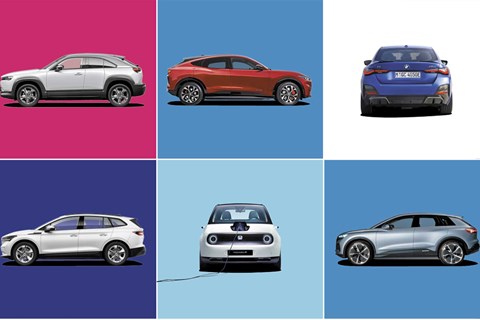► Electric cars outsell diesel cars in 2021
► Tesla Model 3 the best-selling electric car
► Kia e-Niro and VW ID.3 also big sellers
The chicken and egg debate about whether the car industry should go all-in on EVs cracked in 2021. Scores of pure electric cars were launched, ranging from the relatively affordable Peugeot e-208 and Vauxhall Mokka-e through to seven-figure supercars with mind-blowing performance in the Lotus Evija, Rimac Nevera and Pininfarina Battista.
And they sold – particularly the Tesla Model 3. The year-end registrations from the Society of Motor Manufacturers and Traders revealed that pure electric cars outsold diesel cars in the UK. Total EV registrations were 190,727 units – up from 108,205 in 2020. That’s growth of 75 per cent, though a drop back from 2020 when the rate of increase tripled – from a lower base.
‘We need to increase the take-up rate of electric vehicles,’ urges Mike Hawes, chief executive of the Society of Motor Manufacturers and Traders, the UK car industry’s lobby group. ‘And that means addressing their affordability, the [charging] infrastructure and their ease of use.’

Plug-in hybrid sales also had a strong year, with 114,554 registrations – despite no government incentives – meaning cars with a plug took 18.6% market share in 2021. Indeed, the SMMT reckons car manufacturers now offer at least 115 cars with zero emission capability in the UK.
What were the most popular electric cars?
The Tesla Model 3 was the UK’s favourite EV, with more than 34,783 cars registered. Tesla outsold the total registrations of Citroën, Mazda, Honda and Renault across their ranges, from pretty much a single model! And Tesla is poised for dramatic European growth this year, as its Berlin gigafactory comes on stream and first deliveries of the Model Y SUV hit the UK.
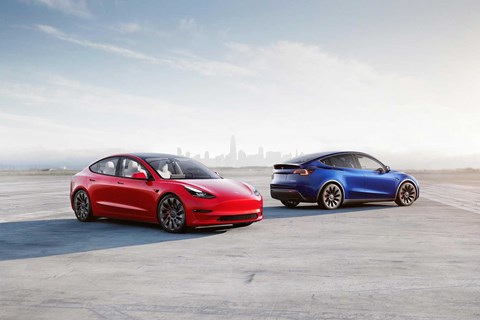
Both the Kia e-Niro and VW ID.3 broke the 10,000 units barrier to take second and third spots on the podium, while the Nissan Leaf and Audi Q4 e-tron completing the top five.
Vauxhall’s Corsa was the UK’s best selling car in 2021, knocking a Ford off top spot for the first time in 50 years. Of the Corsa’s 40,914 registrations, some 5605 (14 per cent) were for the electric engine. The remarkable Model 3 was the UK’s second favourite car overall.
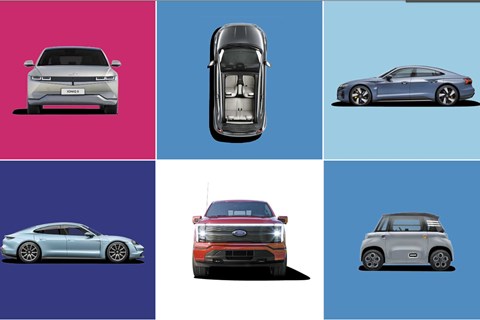
Premium brands dominated the plug-in hybrid market, with the 3-series the most registered, with Mercedes, Volvo, Audi, BMW and Land Rover models in the top 10. The Ford Kuga – with 6137 registrations – and the Seat Leon PHEV in tenth were the sole models from non-premium brands.
Some 40 per cent of the 14,017 Porsches registered in the UK and Ireland were electrified, and the all-electric Taycan accounted for a whopping 4000 sales, nearly one-third of the brand’s overall registrations.
Who’s buying EVs?
Businesses are behind six out of every 10 plug-in cars registered. ‘Many large organisations have set ambitious targets to move their entire car and van fleets to zero emissions by 2025,’ explains Stephen Briers, editor-in-chief of industry bible Fleet News.
It’s no surprise retail customers are lagging behind: the government continues to slice the Plug-In Car Grant, infuriating Mike Hawes at the SMMT who has been calling for more subsidies to boost adoption.
The UK grant dropped to a measly £1500 in December 2021, available only on cars costing less than £32,000 (down £3k). In Germany, punters can claim €9000 off a sub-€40k car. UK EVs qualify for zero road tax but that’s scant consolation.
Business buyers snaffle both these benefits and – significantly – they can deduct the entire cost of new EVs from the company’s pre-tax profits. In addition, firms can deduct 130% of the price of EV chargers.
Chancellor Rishi Sunak’s benevolence doesn’t just apply to capital costs: company EV drivers can slash thousands off their benefit-in-kind tax by switching to an EV or PHEV. ‘Who wouldn’t want a £40,000 EV for around £100 a month in tax?’ asks Briers.
Fiscal policy is undoubtedly influencing the cars companies buy. Audi’s full-size e-trons now ‘comfortably outsell’ the seven-seat Q7 SUV, says UK managing director Andrew Doyle. ‘And we sold more than 6000 Q4 e-trons last year in just six months, even with supply constraints. And we have 20,000 orders, making it by far the number one Audi, blowing the A3 and A1 out of the water.’
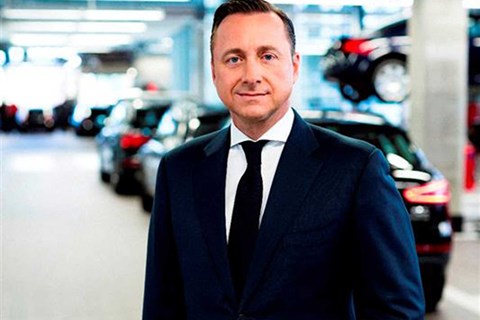
How easy is charging EVs on the go?
With the electric car market gathering pace, and range growing to comfortable levels – Mercedes’ EQS set a new UK benchmark of 453 miles, though at a cost of £99,995! – the critical battleground is now public charging. The government is pumping £1.3billion into installing the prodigious power needed to wire up thousands more chargers on the key trunk roads.
‘The biggest obstacle for people is range anxiety, the ability to charge and the user experience [at chargers],’ suggests Mike Hawes. According to Zap-Map, some 7313 chargers were installed in the first 50 weeks of 2021, taking the British network to 28,279 devices overall.
The SMMT frets that the installation rate is failing to keep up with EV adoption, claiming there’s approximately one charger for every 16 EVs, up from a ratio of 1:11 in 2020. There are now more than 500,000 electric cars on UK roads – and while topping up for most journeys can be done at the 230,000 home chargers or circa 20,000 workplace devices, fears will grow of queues during peak periods.
But BP Pulse – which runs one of the UK’s biggest networks – believes the growth in the most-used ultrafast rapid chargers is keeping pace with electric vehicle adoption. In November, its network delivered 3.5million kilowatthours of public charging, good for about 10million zero emission miles, with the busiest London charger used up to 30 times in 24 hours. BP calculates the entire UK infrastructure has a usable capacity five times greater than the hundreds of millions of kWh currently consumed by public charging per year.
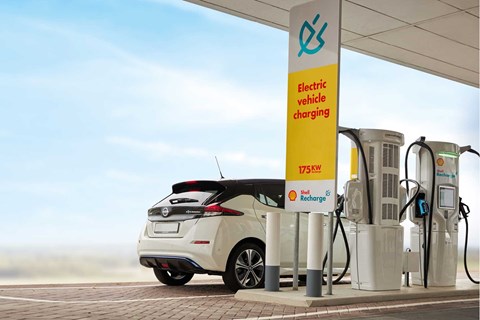
And forecourt giant Shell has big plans to boost its UK public infrastructure. By 2025, it aims to grow its forcourt network from 119 Recharge points to more than 5000. Over the same period it plans to install 50,000 on-street charge posts through its subsidiary Ubitricity, and 800 chargers at Waitrose stores.
The UK’s domestic car makers players go electric
A massive challenge for the UK car industry is to switch its combustion engine-dominated engineering and supplier base to electric cars. Some big 2021 announcements began this process. Vauxhall’s Ellesmere Port plant will build nothing but electrified vans beginning next year.
Nissan committed to replacing the Leaf with a compact EV crossover from 2024, with batteries supplied by the UK’s first Gigafactory.
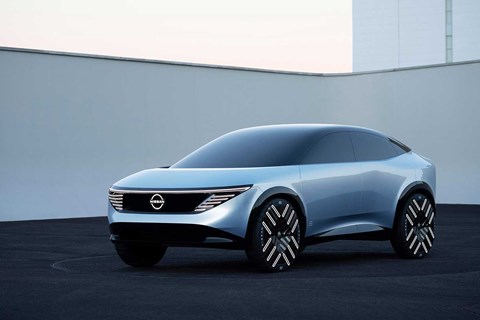
In the same year, the Range Rover will be available with solely battery power: sources say going EV should enhance off-road responsiveness with instant torque controllable at each wheel, a high-voltage system to minimise charging downtime and a suite of connected services to boost convenience for owners.
Rolls-Royce is also making the switch to electric power, and in September announced its pure EV – the Spectre coupe – for 2023.
Is the US embracing electric cars?
The change of president has triggered a profound shift in US climate policy, and President Joe Biden is targeting an electrified car market share between 40 and 50% by 2030. Today’s total is 3-4 per cent of a circa 15m market, with the Tesla Model Y this year’s biggest selling EV.
The domestic car industry is all-in, with General Motors investing $35billion by 2025 and promising 30 EVs around the world. Ford has had to cap deposits on the electric version of America’s best-selling truck, the F-150 Lightning, with a remarkable 200,000 expressions of interest.
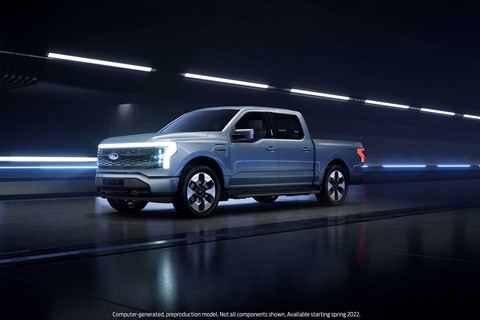
Hearteningly, Ford showed a future-facing version of the beating heart of American car culture – the crate engine – by offering a 281hp drop-in e-motor for transverse applications.
And is Asia leading the pack?
China, whose domestic car makers have embraced EV as a way to leapfrog the combustion engine dominant old world, remains the hotbed for EVs. It recorded around 2.3m BEV sales in the first 11 months – that’s 11 per cent share of the world’s biggest market.
It dwarfs the volume in Japan, which has the least ambitious greenhouse gas reduction targets of the EU, USA and China. In 2020, just 15,000 EVs were sold. But two announcements to supercharge that came before Christmas.
Nissan pledged to introducing 15 EVs by 2030, when it expects half its sales to be electrified. And Toyota – which has resolutely applied the handbrake to pure electric cars, despite its hybrid trailblazing and hydrogen fuel cells – committed to delivering 3.5m EVs a year by 2030. It’s a significant move, given Toyota’s scale which vies with VW Group to be world number one.
Toyota, like the rest of the car industry and consumer behaviour, is changing fast. And the electrified events of 2021 prove it.
